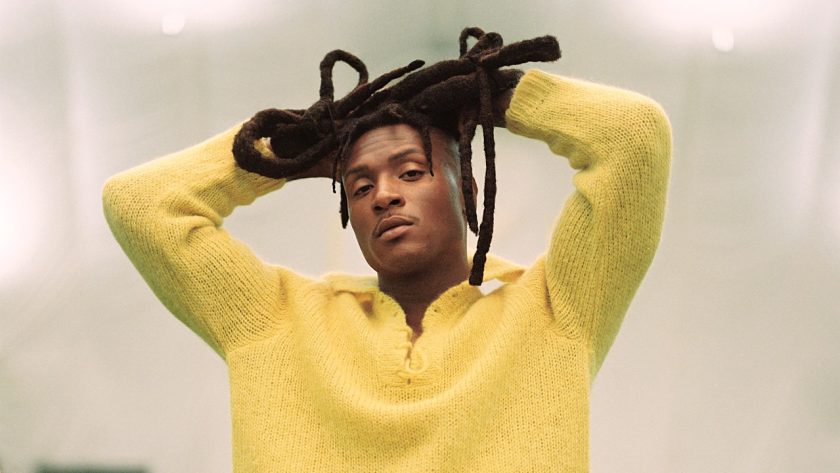“Being in Houston, there’s so much food and it’s so accessible,” he says. “If you don’t really have a strong will, or a chef, how would you know not to go to Mastro’s and get you whatever steak you wanted?” He remembers one game day morning in particular when, feeling like shit after taking down a Texas-sized serving of red meat the night before, he went to stadium early to try and sweat it out in the steam room. All that did was give him cramps when the game started. “I didn’t understand you can’t just drink water when you get out of the steam, you gotta drink salt and potassium,” he says. Though he laughs at the memory, his point is a powerful one: Hopkins has always been elite because of his in-game ability to control his body in tight spaces, but he’s learning more and more about how to take care of it before he even puts on his pads.
So he applied the same logic to his training. After his MCL surgery, he looked for the best trainer he could find, and got connected to Nicholas Hill at Exos, a strength and speed coach who has worked closely with other NFL stars like Odell Beckham, Jr., and Saquon Barkley. Up until then, Hopkins says he relied mostly on his natural athleticism. “I’m from the country, so I go run some hills and lift some weights, and I’m good, you know?” he says. Hill introduced him to track-based work, incorporating exercises that taught Hopkins new things about acceleration, mechanics, and body positions and angles. Think about that for a second: Hopkins racked up more than 11,000 receiving yards before he knew how to train for speed. “He’s building strength that he didn’t have before,” says Hill. “He’s getting better at 31 years old, which is a scary thought.”
Hopkins agrees. “This is probably the best shape I’ve been in physically since I’ve been playing, since I came into the NFL from college,” he says, before acknowledging that most older players tend to say that. “But I feel like my training and my body has—not changed, but adjusted to my training routine and my eating habits. I feel healthier after practice.” On top of that, he has the type of veteran savvy that only comes through experience. Last year, he performed well in a rather disappointing situation in Arizona, playing for a team that cycled through four quarterbacks, and finished the season on a serious losing skid. “I still thrived in the offense with a lot going on outside the game of football,” he says. “That’s not just being smart or good. That’s being mentally strong as well.”
A testament to this mental strength: Hopkins’s NFL-topping 11,298 career receiving yards have come while playing for thirteen different starting quarterbacks. The fact that he has thrived in an 11-year game of quarterback musical chairs speaks to Hopkins’s mindset, a balance of acceptance and positivity, and an ability to find opportunity no matter the external circumstance. It’s something Hill saw early on during his work with Hopkins, when the PED suspension came down. “He was like, I want to use this time, I don’t want to waste it,” he remembers. “He was very positive about it: It is what it is, there’s nothing we can do about it, let’s take advantage of this additional time.” It’s that type of ease that anchored Hopkins during a chaotic offseason, and that has him feeling confident in learning yet another offensive system. “I didn’t mind not knowing where I would land up,” he says. “To me, I was like, that’s longer I can be in the gym. That’s longer I can go work and craft. I don’t mind at all, cause I know the work I put in the offseason, it’ll show anywhere I go.”



